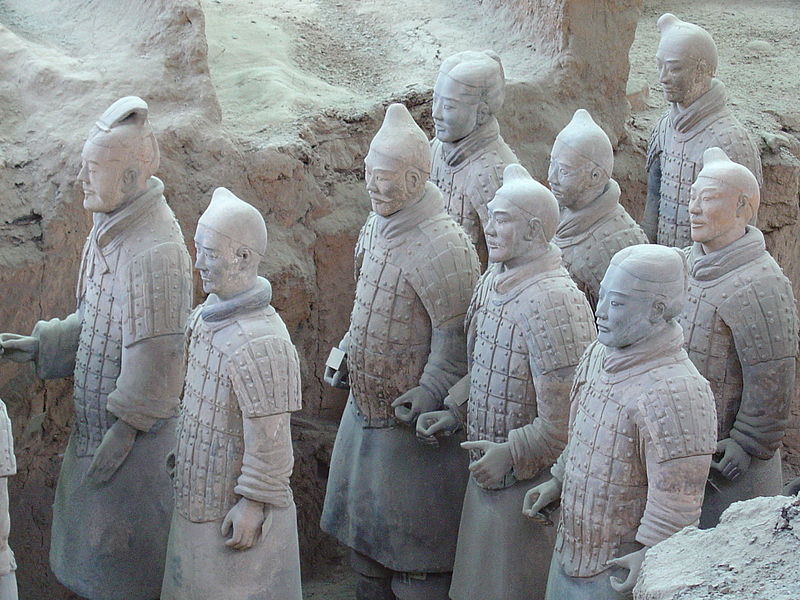
Years ago I watched an action-comedy movie : The Mummy 3: the Tomb of the Dragon Emperor. I loved the special effects and the scale of the adventure, but at the time, I thought all of it was simply embellishment.
Now as I work with my son through ancient history, we’ve been investigating the life of China’s first emperor, and I’m amazed to discover that the movie did not do the scale of the emperor’s creation justice!
He built a tomb complex larger and more intricate than the pyramids, surrounded it with miles of pits filled with 8,000 life-size Terracotta soldiers, commissioned the great wall to be built for hundreds of miles–all after he had build superior weapons for his army and waged war to conquer and unify the different regions of China.
But it’s not Qin Shi Huang’s accomplishments that astound me, it’s that a vast number of those accomplishments and years of his life that he chose to spend in fear of death and in the pursuit of immortality.
Based on the history of betrayals by people close to him, I don’t fault the Emperor for being a bit paranoid. But his work goes beyond any normal or even extreme measures to prepare for the afterlife.
His army of Terracotta soldiers contains at least 7,000 soldiers, and even more stone armor that was placed in it’s own pit for others. These soldiers were supposed to defend him from enemies that would attack him in the afterlife.
Those that attended his body to it’s final resting place: his concubines and servants are also said to have been locked into the tomb with him to join him in the afterlife and keep from giving away secrets to entering the tomb itself.
Amazingly, the Chinese people have not yet worked to open up the tomb, so there are tons of priceless artifacts and bits of history that are only available in legend at this point.
And it brings these thoughts to mind for me:
- I am grateful for the peace and security that our salvation through Christ gives us. I don’t like the thought of death and I hate the effects of aging, but I look forward to the next life, knowing that it’s not dependent on my performance, merit, or birthrights in this one.
- I am reminded of just how much people need our faith and the assurance of our salvation, and how much they can suffer without it.
- And I feel that the depth at which the act of killing other people, either by one’s own actions or by people under a person’s leadership, marks a person. The guilt and regret I see in the emperor and the fear that their culture lived under of revenge in the next life would have been quite an extreme weight to bear!
I am no conquerer or war hero, but seeing this extreme example of a powerful leader and the struggle that consumed him gives me fresh perspective on life and faith.
Recent Comments